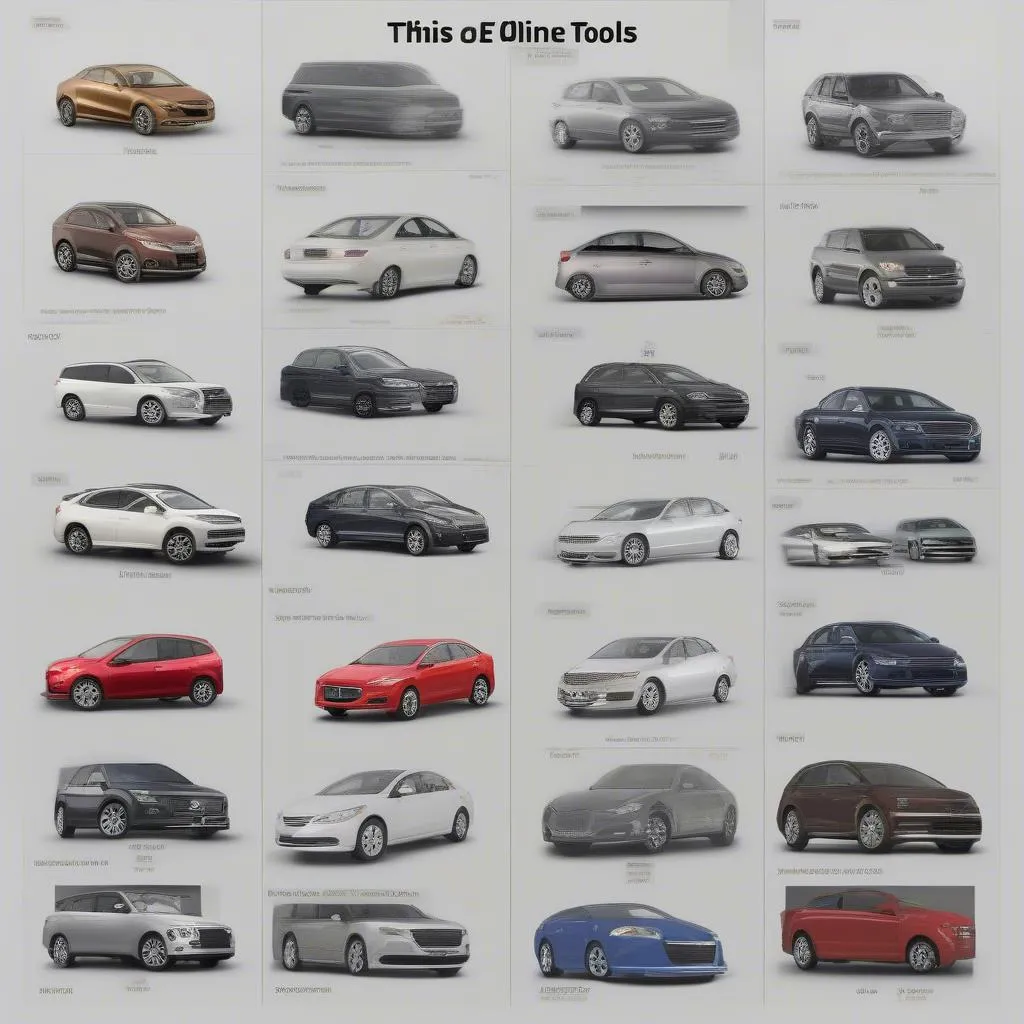Imagine this: you’re in the market for a new car, but your budget is tight. You’ve heard about the benefits of buying a used car, but you’re unsure how to determine its value. You need a way to find out if the price you’re being offered is fair, and if the vehicle is worth the investment. This is where understanding “second hand car value” comes in.
What is Second Hand Car Value?
Understanding the value of a second-hand car is crucial for both buyers and sellers. Here’s a breakdown from different perspectives:
From a Mechanic’s Perspective:
A mechanic will assess the car’s overall condition, focusing on:
- Engine Health: How well the engine is running, its mileage, and its maintenance history.
- Body Condition: Any signs of damage, rust, or corrosion, and the overall aesthetics of the car.
- Electrical System: Inspecting the electrical components to ensure they are functional and safe.
From a Technical Perspective:
From a technical viewpoint, the value of a second-hand car is based on factors such as:
- Year of Manufacture: Older cars often have lower value due to depreciation and potential for wear and tear.
- Mileage: A car with high mileage may have experienced more wear and tear, impacting its overall value.
- Model and Make: Certain car models and makes are more desirable than others, influencing their resale value.
From an Economic Perspective:
Economically, second-hand car value is affected by:
- Market Demand: The popularity of specific models and makes can impact their value.
- Fuel Efficiency: Cars with high fuel efficiency are often more desirable, increasing their resale value.
- Safety Features: Cars with advanced safety features tend to hold their value better.
How to Determine Second Hand Car Value
Several factors influence the value of a second-hand car. Here are some key methods for determining it:
1. Online Valuation Tools:
Numerous online tools can help you assess the value of a used car. Websites like Kelley Blue Book, Edmunds, and NADA Guides provide estimates based on the car’s year, make, model, mileage, condition, and location.
Example: Let’s say you’re considering buying a 2018 Honda Civic with 50,000 miles. By entering these details into a valuation tool, you can get a ballpark estimate of its current market value.
2. Local Dealerships and Private Sellers:
Visiting local dealerships and contacting private sellers can provide valuable insights into the market value of similar cars. This approach allows you to compare prices and assess the condition of available vehicles.
Example: You could visit a Honda dealership and inquire about the price of a similar 2018 Civic. You can also contact private sellers in your area who are selling comparable cars to get an idea of their asking prices.
3. Professional Vehicle Inspections:
For a more comprehensive assessment, consider having a professional vehicle inspection conducted. A certified mechanic can inspect the car thoroughly and provide a detailed report on its condition, identifying any potential issues that might affect its value.
Tips for Buyers and Sellers of Second-Hand Cars
Here are some valuable tips to keep in mind:
Tips for Buyers:
- Do your research: Before you start shopping, research the car models you’re interested in, including their reliability, common problems, and market value.
- Get a pre-purchase inspection: Always have a trusted mechanic inspect any car before you buy it. This will help you identify potential problems and negotiate a fair price.
- Compare prices: Don’t settle for the first price you see. Compare prices from different dealerships and private sellers to find the best deal.
Tips for Sellers:
- Clean your car: A clean car is more appealing to potential buyers.
- Gather all documents: Make sure you have all the necessary documents, such as the title, registration, and maintenance records.
- Price competitively: Research the market value of your car to determine a fair asking price.
Common Questions about Second-Hand Car Value:
Q: What is the biggest factor affecting second-hand car value?
A: The condition of the car is the biggest factor. A well-maintained car with a clean history will command a higher price than a neglected car with significant wear and tear.
Q: How does location impact second-hand car value?
A: The location can influence the value of a second-hand car. For example, cars in high-demand areas like Los Angeles may have a higher value compared to cars in rural areas.
Q: What is the best way to determine a fair price for a second-hand car?
A: The best way to determine a fair price is by combining online valuation tools, comparisons with local dealerships and private sellers, and a professional vehicle inspection.
Q: How can I make sure I’m getting a good deal on a second-hand car?
A: Always do your research, get a pre-purchase inspection, compare prices, and consider the car’s overall condition and mileage.
Conclusion
Understanding the value of a second-hand car is essential for both buyers and sellers. By using the methods outlined above, you can make an informed decision and avoid costly mistakes. Remember, a little research and preparation can go a long way towards securing a fair price and a reliable used car.
 Second Hand Car Value Estimation Tools
Second Hand Car Value Estimation Tools
If you need assistance with understanding the electrical systems of European cars and have any questions about diagnostics tools, feel free to reach out to us via Whatsapp: +84767531508. We have dedicated experts available 24/7 to support you.
For further information on car-related topics, you can explore these resources:
- Subaru Legacy
- MR2 Car
- Famous Race Car Drivers
- Second-Hand Cars in Los Angeles
- Car Insurance Liability Only
We hope this guide has been helpful. Share your thoughts and experiences in the comments section below.


